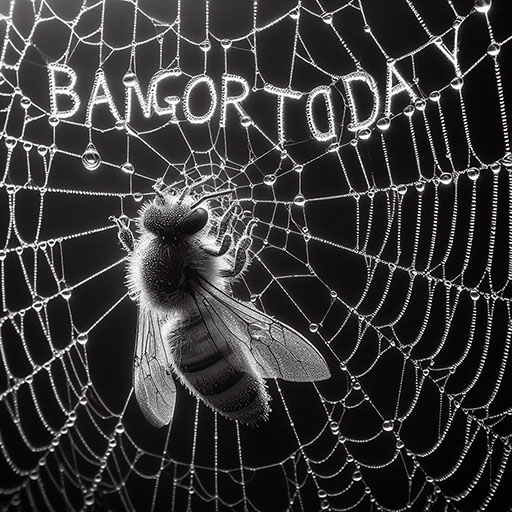The number of ticks on moose killed during this fall’s annual hunt is much lower for the second year in a row, according to Maine’s moose biologist.
Lower tick numbers mean more baby moose are surviving, said Lee Kantar, the moose biologist at the Maine Department of Inland Fisheries and Wildlife.
In the 2021-22 season, 60 out of 70 monitored moose calves died from ticks, making it the deadliest year. However, in the 2022-23 season, only two out of 70 calves with collars died.
Kantar is part of a team that puts monitoring collars on 70 calves in early January to continue the tick study. Maine biologists work with Canadian counterparts in Quebec to study moose health.
This marks the 11th year scientists have collared moose for study, totaling close to 900 moose, according to Kantar.
“Moose move back and forth across the border. Quebec’s regional biologist will collect a collar or do a necropsy if a moose we’re monitoring loses its collar or dies on the Canadian side,” he explained.
The final data for the 2023 moose hunt won’t be available until early 2024, but Kantar expects the number killed to be similar to last year’s. The state’s Big Game Harvest Dashboard indicates 2,454 moose, but the number is not final.
In 2023, a total of 4,106 permits were issued for three separate weeks of moose hunting. With this number of permits, Maine’s moose hunt is one of the biggest in the lower 48 states, Kantar mentioned.
Maine manages the moose herd as a renewable resource for the future, ensuring it stays sustainable. The annual hunt is part of this management strategy.
The moose hunt has changed in recent years. Moose have learned that people shoot at them on roads, so hunters on logging roads may be disappointed. The moose are now found deeper in the woods, according to Kantar.
Maine’s hunt is unique because hunters have only one week to scout an area and kill a moose, unlike deer season, which has several weeks with different methods. The annual moose hunt brings together both experienced hunters and those new to hunting, Kantar said.
A successful hunt is measured in more than just filling a tag, Kantar noted. Some hunters prioritize spending time together or observing moose over shooting, making the experience meaningful in different ways.



